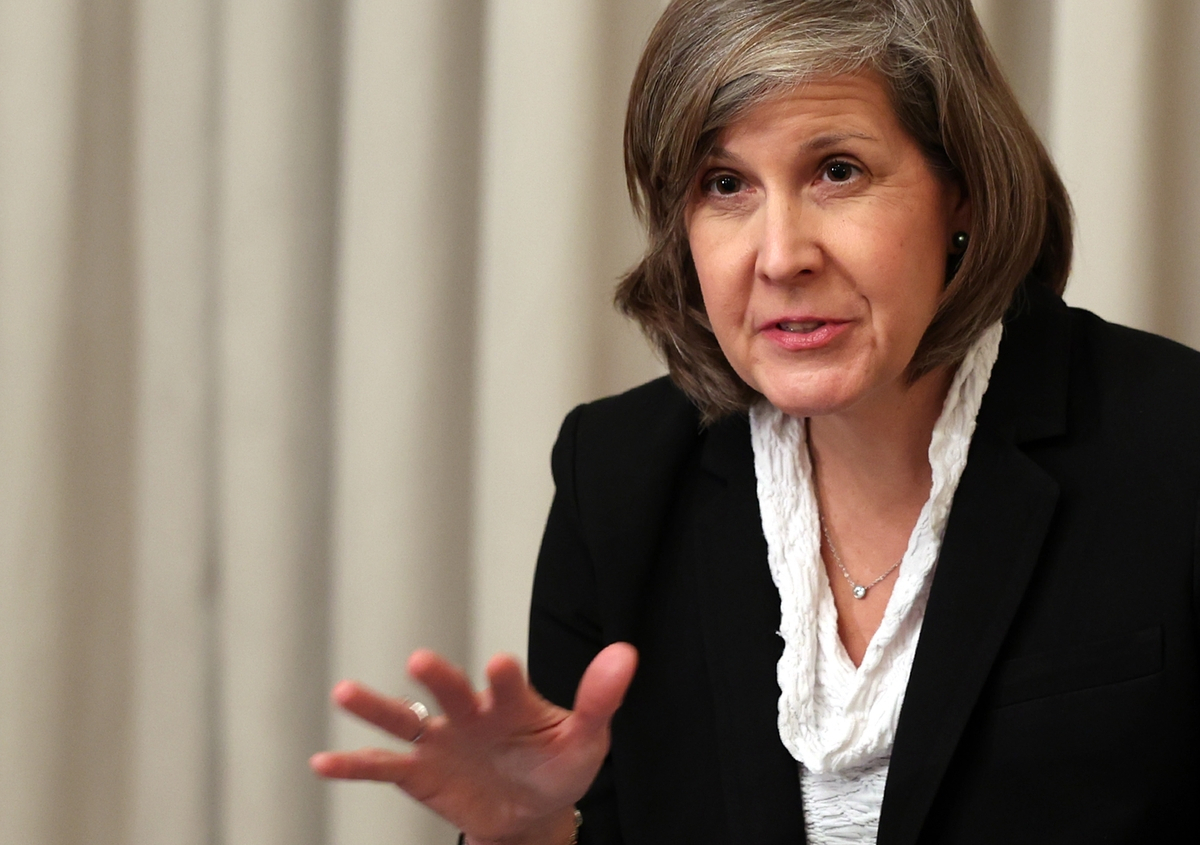 |
Michele Sumilas, assistant to the administrator of the bureau for planning, learning and resource management at the US Agency for International Development, speaks during an interview with Yonhap News Agency in Seoul on Wednesday. (Yonhap) |
South Korea, the United States and Japan seek to demonstrate to China and others that being democratic and transparent is "the way for greater economic growth" as the three countries work to deepen cooperation in development projects amid rising global competition, a senior official at the US development agency has said.
Michele Sumilas, assistant to the administrator of the bureau for planning, learning and resource management at the US Agency for International Development, stressed that the key functions of its development efforts are to help "realize that we should be providing assistance that allows countries to create democratic communities, to have economic growth and to move forward in their development."
"What we are doing, as like-minded countries ... is we're demonstrating to our partners around the world, whether China or other countries, that being democratic, working with civil society, being accountable and transparent, is the way to for greater economic growth," she said during an interview with Yonhap News Agency on Wednesday, when asked about the importance of trilateral cooperation amid increasing US-Sino rivalry.
"And so that is why we are building alliances with many different people around the world to really help explain how that kind of governance can lead to greater economic sustainable growth," she added.
Sumilas emphasized the US is "very excited" to partner with Korea and Japan on several projects, saying "there is rising authoritarianism around the world and this is a time for us all to come together."
At the historic Camp David summit in August, the leaders of the three countries agreed to cooperate in coordinating development assistance to regions across the globe. In October, the three sides held their first trilateral development and humanitarian policy dialogue.
As follow-up measures to the summit, the three countries have several projects lined up for the coming six to nine months, including on women, peace and security, ocean plastics, and digital technology, according to the official.
"For example, in Ghana, we are working with Korea and Japan on a project to ensure greater access to primary health care for women and children in that country," she said. "There's also a focus on that project on global health security to ensure that we can fight infections and disease before they break out."
The three sides are also set to hold a "humanitarian dialogue" early next year to better address humanitarian disasters, such as climate change, in the Indo-Pacific and other regions.
On tripartite cooperation, she stressed the three countries have "particularly good synergy" on issues like global health security, technology and digital access, as well as women, peace and security.
"One, we have shared values and understandings about the need for accountability and transparency. We also together value innovation, and we value digital transformation and the effects that the digital transformation can have on development," she said. "I think there's also a particular leadership synergy that is happening, personalities, people who really understand the way the world needs to be, and so we're all responding to that together."
Seoul was Washington's first bilateral partner donor on USAID's Agriculture Resilience Initiative, under which the South Korean government donated US$5 million in fertilizer to support Ukrainian farmers.
"It really is very exciting to us to be here to see how far Korea has come and for now, Korea to be a major development partner partnering with us to take those shared values to countries around the world, and to help them move through their development progress," she said.
South Korea has become a donor country from being a recipient of UN and US aid from the ashes of the 1950-53 Korean War, a transformation that has inspired many developing nations to follow in the footsteps of the Asian country in advancing their economies.
Sumilas welcomed South Korea's increased allocation of resources in the development assistance area, especially as Seoul is set to serve a two-year term as a nonpermanent member of the UN Security Council in 2024-25.
"We are really pleased that South Korea has been able to come forward as a new donor, and they will be a very important donor as a member of the Security Council, as a like-minded donor working on key issues." (Yonhap)







![[Today’s K-pop] Blackpink’s Jennie, Lisa invited to Coachella as solo acts](http://res.heraldm.com/phpwas/restmb_idxmake.php?idx=644&simg=/content/image/2024/11/21/20241121050099_0.jpg)